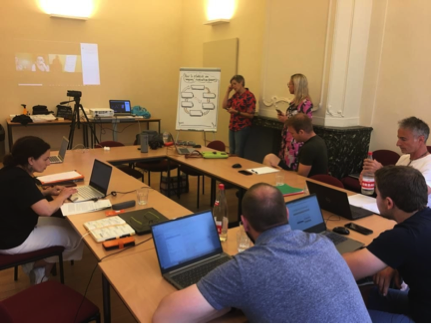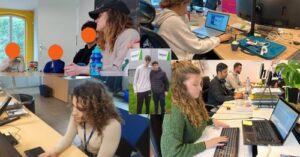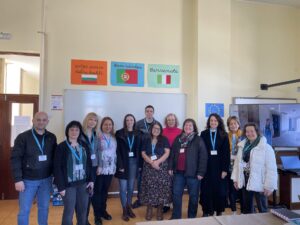The Cooperation Partnerships aim at (among others) increasing quality in the work/activities and practices; addressing common needs:
- Educating on forest work and FSM ( one doesn’t go without the other). “ The Programme supports the use of innovative practices to make learners, staff and youth workers true factors of change. Priority will also be given to projects that – through education, training, youth and sport activities – enable behavioural changes for individual preferences, cultural values and awareness for sustainable development, consumption habits, and lifestyles.” ( p.10)
- All of our activities as foresters answer the European Green Deal ( EUR-Lex – 52019DC0640 – EN – EUR-Lex (europa.eu)), as “ the national strategic plans under the common agricultural policy should incentivise forest managers to preserve, grow and manage forests sustainably. […] the Commission will take measures, both regulatory and otherwise, to promote imported products and value chains that do not involve deforestation and forest degradation”
- Our project aims at ‘” developing competences in various environmental sustainability-relevant sectors”
- Answers the transversal priority “ Environment and fight against climate change”
- Answers the transversal priority “ addressing digital transformation through development of digital readiness, resilience and capacity” as our project supports the “ purposeful use of digital technologies in education, training…” + development of digital pedagogy and expertise in the use of digital tools for teachers
- Answers the following sector specific priorities
- “increasing the flexibility of opportunities in vocational education and training” : this priority supports initiatives that develop flexible and learner-centred VET programmes
- “ contributing to innovation in vocational education and training” : supports projects which core aim is to substantially change the way in which VET is practiced, making it more relevant to the current and future needs of the economy and society. These changes can be organizational (planning, financing, human resource management, monitoring and communication). They can also address teaching and learning processes through the development and implementation of new and more relevant teaching and learning approaches.





